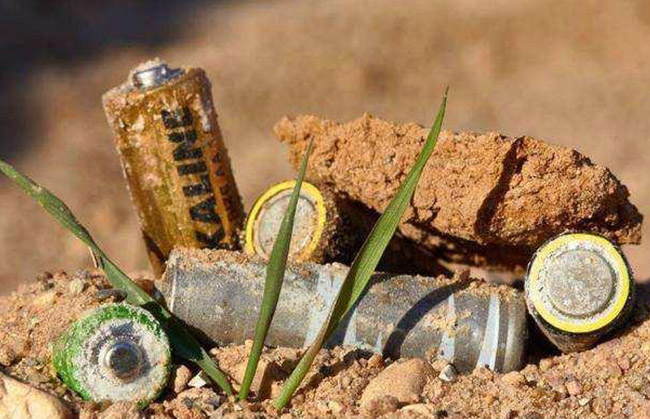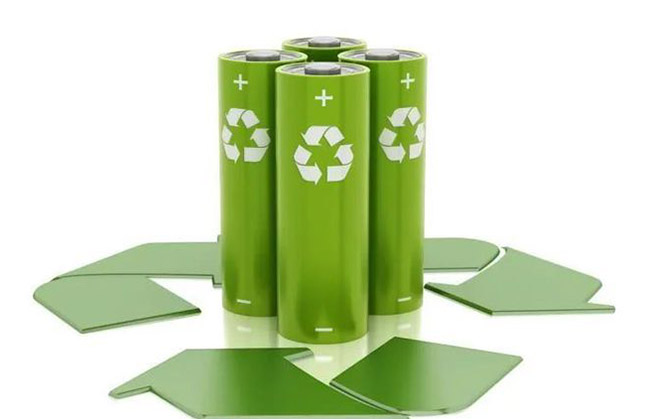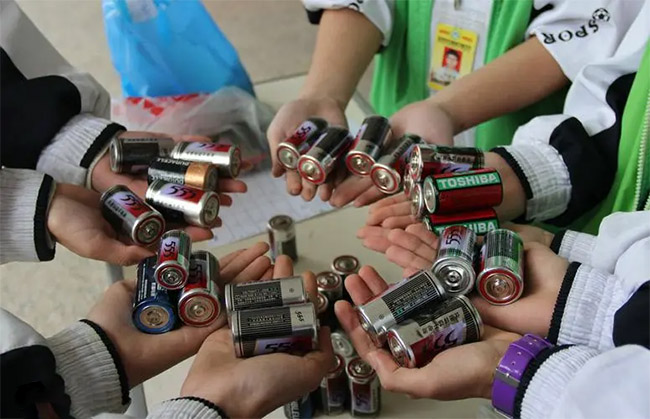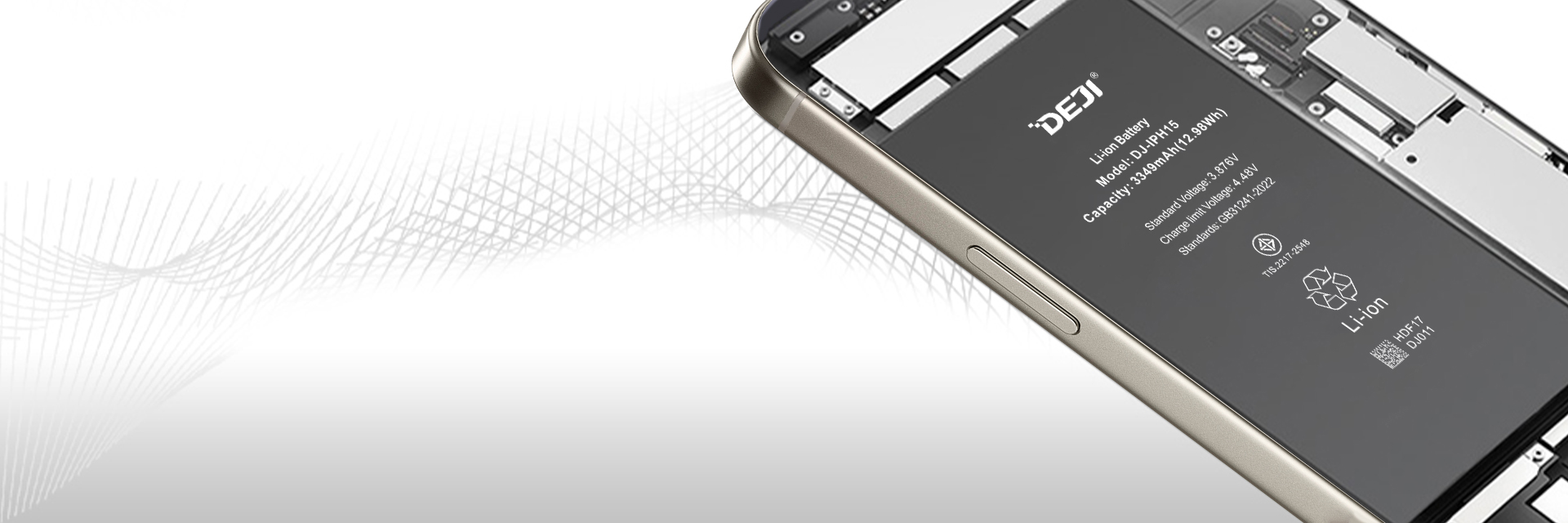Ever found an old cell phone in your junk drawer and wondered, "how to dispose of cell phone batteries"? Like that mysterious sock disappearing act we all experience during laundry day, figuring out what to do with these forgotten powerhouses can feel like a puzzle.
In this labyrinth of lithium-ion mysteries, let's shine a flashlight. Not only will you unearth the secrets hidden within those battery casings but also learn how to bid them adieu responsibly. The consequences are more significant than just cluttered drawers; improperly discarded batteries pose environmental threats and health risks too!
Your curiosity has already led you here. Why not venture a bit further? This journey isn't just about tidying up or being eco-conscious – it’s a voyage towards understanding our daily tech better while protecting Mother Earth.
Types of Cell Phone Batteries
The two main types of batteries found in cell phones are single-use and rechargeable. Single-use batteries are typically alkaline, while rechargeable ones come in several forms like lithium-ion and lithium polymer.
Lithium-ion batteries stand out due to their high energy density - they can store a lot of power for their size. This is why they're common in smartphones; they provide long-lasting life between charges without adding significant weight or bulk.
Environmental Impact of Improper Disposal

When discarded carelessly, cell phone batteries can become solid waste with potential to contaminate soil and water sources due to the metals inside their casings. They often end up as solid waste, where harmful metals inside battery casings can leach into soil or waterways if not disposed properly. In fact, it's estimated that improperly discarded cell phone batteries contribute significantly to heavy metal contamination worldwide.
This underscores the importance of knowing how to dispose your old or damaged cell phone batteries safely. Let's dive deeper into this topic next.
Importance of Proper Battery Disposal
The right way to dispose of cell phone batteries is a matter we can't ignore. Batteries are not just everyday items; they're potential hazards when discarded improperly. They contain harmful metals, which pose significant risks if left unchecked.
Batteries from our beloved smart phones often end up as hazardous waste in landfills where they release toxic heavy metals into the environment. This leakage has severe environmental impact and may also lead to health issues for those exposed.
Alkaline batteries, commonly found in consumer electronics like cell phones, house valuable materials that should be recycled rather than thrown away. The Environmental Protection Agency states that recycling these components conserves resources and reduces the demand for raw materials.
We all love using our mobile devices without worrying about battery life but imagine what would happen if everyone tossed their used batteries into trash bags instead of taking advantage of available recycling services? That's an environmental nightmare.
Safeguarding Our Planet with Responsible Recycling
To prevent such scenarios, we need to prioritize proper battery disposal methods including battery recycling programs. It's not just about reducing solid waste; it’s a step towards protecting our planet and ourselves from harm caused by mishandled waste.
How to Dispose of Cell Phone Batteries
Don't just toss out a broken or useless cell phone battery - it's not only bad for the environment, but in some states like California, it is against the law. In many places like California, doing so is not only harmful but also illegal.
Preparing for Disposal
The first step to properly dispose of your cell phone batteries involves preparation. Start by identifying whether your battery is rechargeable or single-use.

If you have an old smartphone lying around with nickel cadmium (NiCd) or nickel metal hydride (NiMH) batteries, they need special handling too because these types contain heavy metals that can harm the environment if improperly disposed.
Securely store your cell phone battery until you are ready to discard it. You might want to consider using clear packing tape over the contacts on any damaged or leaking batteries as one such safety measure before disposal.
Disposing of Other Types of Batteries, gives more detailed information about how best to handle different kinds of power cells from cordless power tools, digital cameras and even hearing aids.
Recycling Options for Cell Phone Batteries
Throwing cell phone batteries in the garbage isn't an option that should be taken lightly. They contain valuable and potentially harmful materials that need proper handling.
Drop-off Locations
A popular option is using drop-off locations, like The Home Depot, who partnered with Call2Recycle for battery recycling. Transfer stations are another excellent choice where you can leave your old batteries. In addition to these options, many local districts host collection events specifically designed for battery drop-offs.
Mail-in Programs
If visiting a physical location isn't convenient, mail-in programs offer an alternative solution. These recycling programs often provide shipping precautions to ensure safe transport of your used batteries. With just a few steps from packing to mailing out your parcel, this method makes it easy and straightforward to recycle responsibly.
In both cases—drop-off or mail-in—it's crucial that we all take part in helping keep our environment clean by properly disposing of our old cell phone batteries.
Local Recycling Options
Got a worn-out cell phone battery? You've got options. Let's explore some local solutions to help you recycle it responsibly. First off, recycling facilities are a great place to start. These places often accept different types of batteries for recycling.
You can also check out your nearby office supply stores. Many of them offer collection bins where customers can drop off used electronics and batteries.
California has specific rules, so if you're in the Golden State, make sure to follow those guidelines when disposing of your batteries.
Battery manufacturers sometimes run mail-in programs too. That means they'll send you a kit with all shipping precautions included - simply pop in your old battery and send it back.
Precautions and Safety Measures
Taking the right precautions when handling cell phone batteries can make a world of difference. Understand the risks associated with cell phone batteries to ensure safety.
Handling Damaged or Leaking Batteries
Don't fret if your battery has been compromised. Remember that safety comes first, so avoid touching any leaked substance as these may contain harmful chemicals like mercury found in button cell batteries. EPA guidelines provide comprehensive steps on how to deal with such situations.

You should also take note that alkaline batteries pose environmental risks if tossed into regular trash bags due to their composition. Call2Recycle suggests specific disposal methods for these types of power cells.
The golden rule? If you're unsure whether a battery is safe to handle or dispose of - ask an expert at local repair shops. They'll have the know-how and tools necessary for proper handling and storage techniques.
Alternative Uses for Cell Phone Batteries
If you've got old cell phone batteries lying around, don't toss them just yet. There are surprising ways to repurpose these power sources.
For instance, they can bring new life to your cordless power tools. With a bit of tinkering and the right voltage match-up, you could use those batteries in drills or sanders.
Besides tools, think about recharging other consumer electronics like digital cameras or even hearing aids. It's all about finding devices that need similar energy density.
Instructables, an online community for DIY projects, offers some innovative ideas on how one can put their old cell phone batteries into good use.
You might be thinking - why go through this trouble? Here's something intriguing: Rechargeable batteries found in smartphones and cordless phones can be charged many times over.
The Power Within Your Old Battery
Your discarded battery isn't useless at all. In fact, it still stores significant power long after its cellphone lifespan has ended.
A New Lease on Life
By re-purposing your used cell phone battery correctly with proper precautions, you not only give it a second lease of life but also contribute towards reducing e-waste.
Disposal of Other Battery Types
We've covered cell phone batteries, but what about other battery types? The disposal methods can vary greatly. For instance, AAA batteries and D cells from your remote or flashlight have different rules.
Let's start with car batteries. They contain lead and acid which are harmful to the environment and cannot be tossed in the trash.
You need a specific recycling facility for these heavy-duty power sources. Some auto shops offer this service free of charge when you buy a new battery.
Moving onto button cell batteries - found in watches and hearing aids among others. These small energy units pack a punch with their silver and mercury content, making them a must recycle item too.
Smoke Detectors: A Special Case
Your smoke detector might not spring to mind when you think 'batteries', but it houses one that requires careful handling on disposal due to its radioactive material component. You should follow EPA guidelines here.
Avoiding Hazardous Waste Dumping is Key
Beyond protecting our planet by keeping heavy metals out of landfills, proper battery disposal prevents potential health risks associated with hazardous waste dumping as well.
Conclusion
Mastering how to dispose of cell phone batteries isn't a magic trick, but an act of responsible stewardship. It's all about understanding your tech better and taking steps towards preserving our environment.
You've now discovered the secrets behind those battery casings - rechargeable lithium-ion mysteries solved! Remember, not only do they store power for your gadgets but also contain materials that can harm our world if tossed away carelessly.
The takeaway is simple: Be mindful with disposal. Opt for recycling programs or drop-off locations at retail stores instead of trash bags. If in doubt, reach out to local waste facilities or manufacturers for help.
Your old cell phone battery might just be one small piece in this big environmental puzzle, yet it carries a significant weight on its tiny shoulders. Dispose wisely!
 sales@batterydeji.com
sales@batterydeji.com




